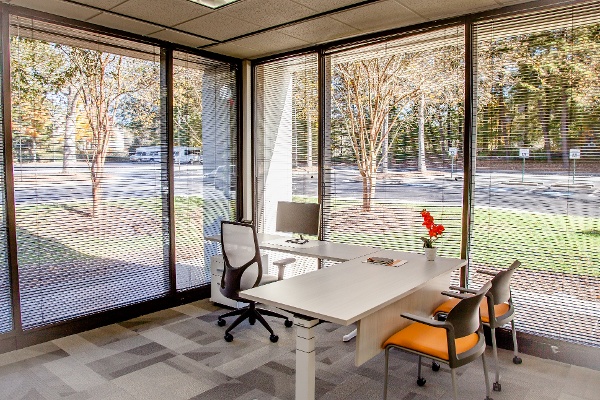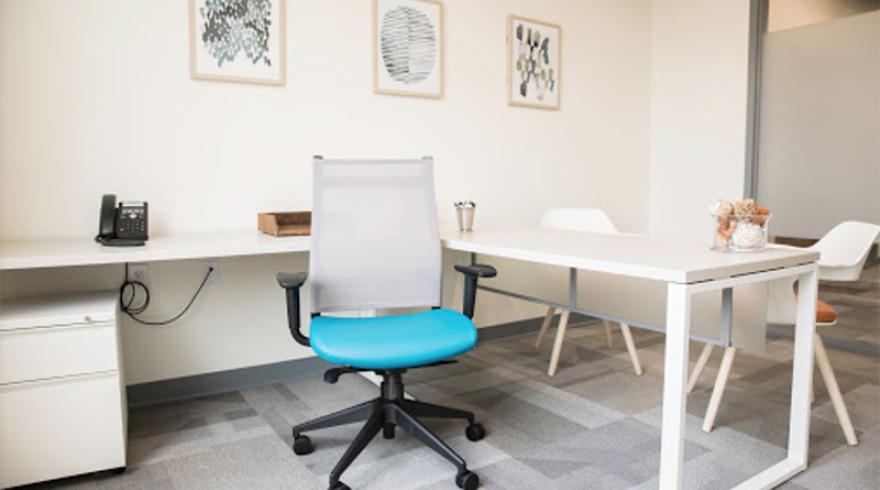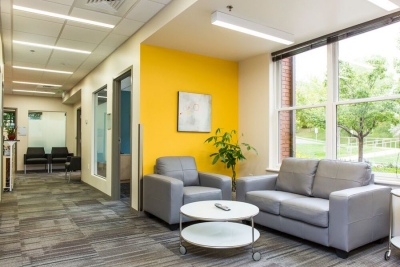
How to Budget for Office Space
Budgeting for office space can be tricky, especially if you think your space needs might change in the coming months or years.
Several elements will ultimately determine the price you pay for your space, including location, size, amenities, construction, and other expenses.
Let’s look at the most common expenses in more detail so you can calculate the true cost of a private office and start planning your budget.
Construction Costs
Most office spaces need to be built out. In many cases, you’ll need to knock down or build walls to create meeting rooms, break rooms, and private workspaces, depending on your needs. Plan to include the following construction costs in your budget:
 Hard Costs
Hard Costs
Hard costs include structural items used in construction, such as doors, windows, flooring, and HVAC systems. These costs usually make up 75% to 85% of your overall construction budget, but they can be difficult to estimate since you must also consider installation costs.
Soft Costs
Soft costs contribute to the construction project but don’t physically alter the environment. These expenses include legal fees, permits, and design fees.
Project Management
Unless you want to pull double duty as a business owner and project manager, you’ll need to hire someone to oversee your project. This is usually 3% to 5% of your final budget, but the actual price can vary.
Miscellaneous Costs
You’ll also need to account for fees associated with vendor services, such as signage, IT system installation, and security systems, if applicable. These fees can vary by provider, and you may need to shop around for the best price.
Ongoing Expenses
Once your buildout is complete, you’ll also have ongoing expenses associated with your private office. Consider what the following expenses will cost you:
Mortgage or Lease
Whether you buy your office space or lease it, you’ll need to budget for your monthly payment.
Utilities
Internet, phone, power, and water bills must be paid each month. The larger your office space, the more expensive these bills can become.
Maintenance
Offices don’t maintain themselves. Funds for repairs should be reserved to avoid major expenses later. Also, you’ll need routine maintenance like landscaping and trash collection to keep your space looking professional.
Taxes
If you purchase your own private office space, you’ll have to budget for annual property taxes. Taxes are affected by the age, size, and location of your space.
 Other Costs to Consider
Other Costs to Consider
In addition to construction and ongoing expenses, the following factors contribute to how much your office space will cost you:
Location
As the first rule of real estate, the location has a lot to do with a property’s price. If your office is in a high-end area or near popular businesses or attractions, the price will likely match.
Security Deposit
If you’re renting your office, you’ll likely have to pay a security deposit before you move in. This deposit may or may not be refundable.
Furniture
You’ll need to purchase enough office furniture so that your space won’t look empty. Desks, chairs, cubicles, bookcases, and other pieces aren’t cheap, especially if you want them to last.
Shared Workspace: The Cost-Effective Alternative to the Pricy Private Office
Whatever you’re spending on an office, you’ll have to make up that much in revenue before you can even think about seeing a profit. Lowering the cost of your office can help you to see gains faster, especially if you’re only paying for what you really need.
The shared workspace provides a viable, cost-effective alternative to expensive offices. There’s no buildout to eat up funds because you choose the space that works for you, be it a single desk or private office suite.
Coworking spaces include everything you need, from utilities to furniture to maintenance, in one monthly fee so there’s never any guesswork about what your office will cost you month to month. Plus, your space can scale with your business without incurring major renovations or expensive moves.
There’s a lot to consider when budgeting for your office, and minor expenses can easily be overlooked. The more you can control your office costs, the better you’re able to plan for your business’s future.